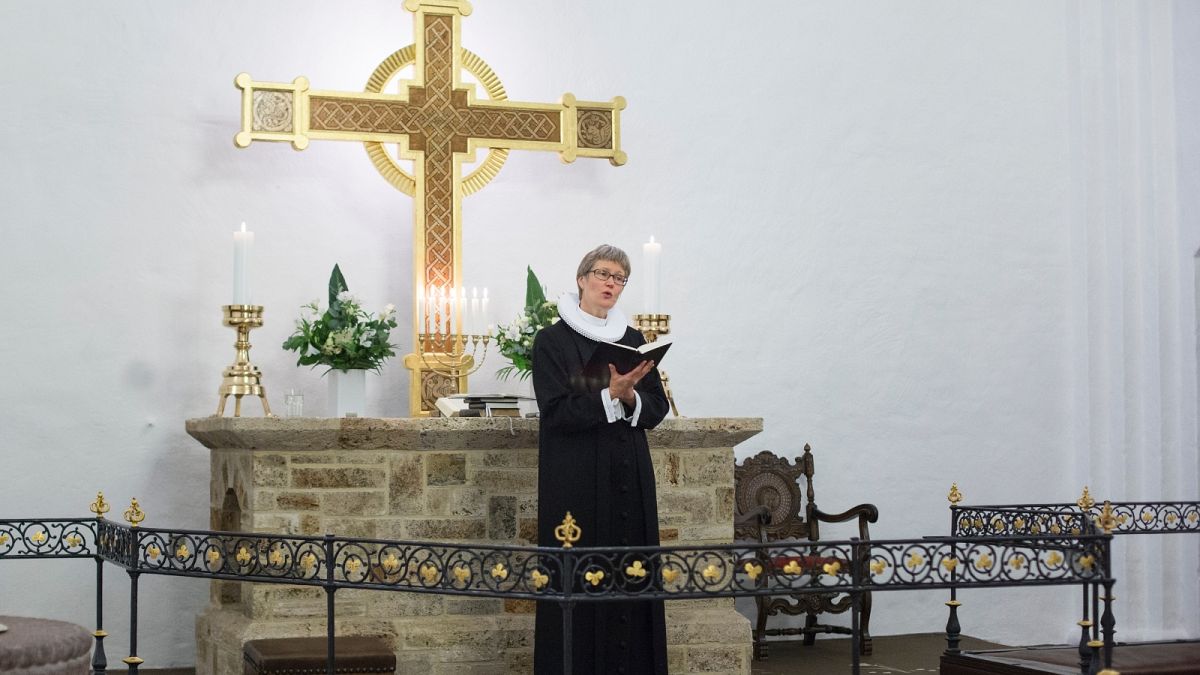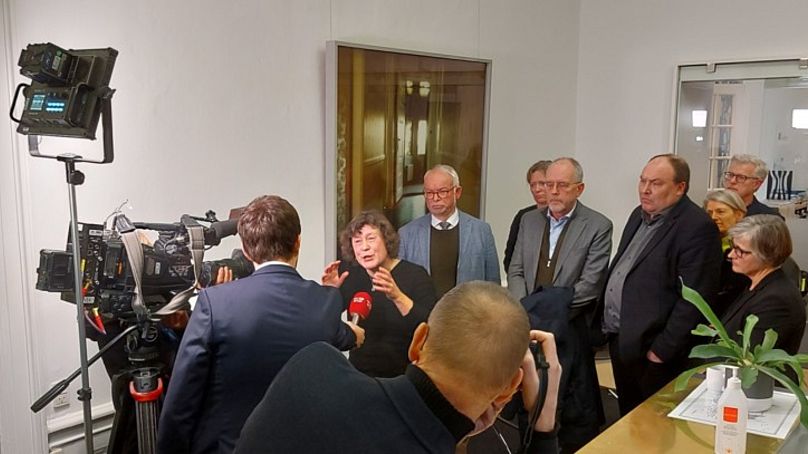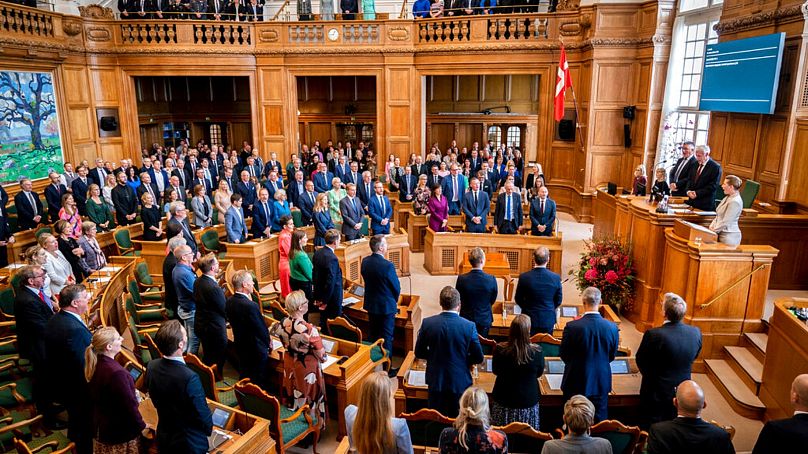PM Mette Frederiksen wants to scrap a centuries-old holiday to boost NATO defence spending.
As William Shakespeare might say, something is rotten in the state of Denmark.
In the space of just a few months since taking office, Prime Minister Mette Frederiksen's coalition government has managed to anger the Evangelical Lutheran Church, ten bishops, nine opposition parties and hundreds of thousands of Danish voters.
And all because of a public holiday.
Not too long after The Bard wrote Hamlet in the 15th century, a Danish bishop came up with the idea of celebrating a "Great Prayer Day" -- store bededag -- which combined a number of other minor holy days into one date on the fourth Friday after Easter.
It's been on the calendar of the Nordic nation for more than 330 years but all that could be set to change, after Frederiksen proposed scrapping the holiday from next year. The money saved would be used to boost defence funding, in part as a response to Russia's invasion of Ukraine, so that Denmark can reach a NATO target of spending 2% of GDP on military budgets, by 2030.
The idea has sparked a furore in Denmark: first and foremost from the people.
A petition launched this week by the largest trade union organisation has already racked up more than 400,000 signatures -- by a long chalk the biggest poll response in Danish history, organisers claim.
"The amount of signees has been staggering. I was not expecting this tidal wave of support," said Lizette Risgaard, president of the Danish Trade Union Confederation FH.
"At the moment, about 1-in-19 Danes has signed the petition and signatures are still coming in fast. It’s such a joy to experience this support," she told Euronews.
FH -- Fagbevægelsens__Hovedorganisation -- said it's "unfair" the government wants to add to its military coffers by "punishing" workers, many of whom are on low incomes.
"Removing a holiday is a one-sided decrease in workers' benefits, while enriching the employers who get another workday with everything that entails in terms of more production and greater revenue," Risgaard explained.
And many employees who already work on holidays, like nurses and doctors, emergency services, sales staff in shops or people in the hospitality and tourism industry, would lose the increase in wages they would usually expect.
"It's just a very unfair and uneven thing to do," said Risgaard.
Religious opposition to the holiday ban plan
Mette Frederiksen's government hasn't just angered trade unions and people who sign petitions, but they've also incurred the wrath of the usually even-tempered Evangelical Lutheran Church of Denmark.
While close to 4.3 million Danes are nominally members of the state church (as in other Nordics countries, they become members when they're baptised as children), less than 20% see themselves as "very religious."
But now Denmark's bishops have accused the government of a "breach of trust" for their plans to scrap the Great Prayer Day holiday, and say that a line was crossed when they weren't even consulted about the move before it was announced.
"In the future, we will fight to ensure that the folk church's tradition of conversation, discussion and inclusive democracy is not harmed by this breach of trust, and we hope and pray that in the future there will be courage to continue the Danish social model, which is characterised by conversation and inclusion," bishops wrote in a letter to government ministers.
On Friday the bishops met with Denmark's Minister for Ecclesiastical Affairs Louise Schack but that apparently did little to assuage their ire, as they described the abolition of the Great Prayer Day as an "unheard of government intervention with a lack of dialogue."
Political opposition, but do the numbers add up?
There have already been political consequences too for the government over the Great Prayer Day debacle, with nine opposition parties in parliament announcing they would withdraw from defence policy cooperation over the issue.
For a country like Denmark where political consensus is the polite norm, that's a big deal.
The leader of the Conservative party Søren Pape Poulsen has said he doesn't think Denmark should try to solve the problems of war in Europe by abolishing the Great Prayer Day, and he expects the government to now open fresh negotiations with all parties on finding a better settlement for the defence budget shortfall.
A protest rally outside parliament called for early February could also attract thousands of people and pile yet more pressure of Mette Frederiksen's young coalition, presuming they haven't backtracked by then.
So do the numbers add up? Will cancelling one public holiday really make such a big difference to the country's military finances?
One of Denmark's most prominent economists doesn't think so.
Professor of Economics Carl-Johan Dalgaard from the University of Copenhagen told Danish public broadcaster DR Nyheder that "there may well be an effect in the shorter term -- simply because we as individuals find it difficult to adapt to the new holiday calendar after a public holiday has been removed. But sooner or later the effect will wear off."
Dalgaard said he doesn't see how cutting the Great Prayer Day will add the three billion krone (€400 million) the finance and defence ministries estimate they need.
"I’m not sure anyone really knows at this point what the economic benefits of cancelling the holiday would be," said Lizette Risgaard from the FH trade union organisation.
"We may not be all that religious, but we are a very traditional people," she told Euronews.
"I am hopeful that the government will come to its senses and realise that interfering with labor and punishing workers is not how we build a better Denmark."


